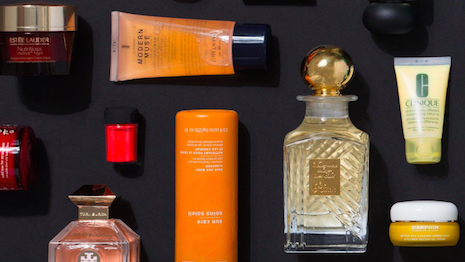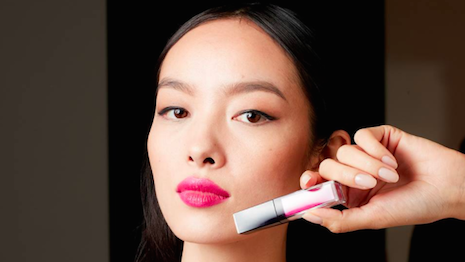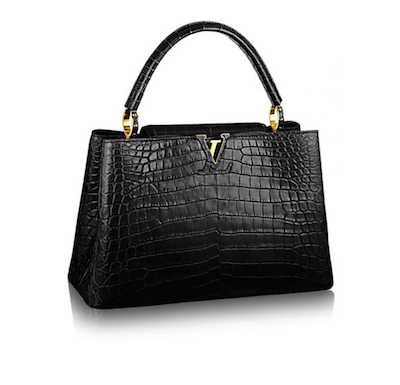 As western consumers reject animal testing and China requires it, luxury brands are caught in the middle. Image credit: Estée Lauder
As western consumers reject animal testing and China requires it, luxury brands are caught in the middle. Image credit: Estée Lauder
While Western consumers tend to reject beauty products tested on animals, China still requires such trials, putting luxury beauty brands in an awkward position.
A new report from Perfect 365 found that a significant portion of Western consumers condemn the testing of beauty products on animals and will reject brands that do so. As China increasingly becomes a major center of luxury consumption, on its way to being the largest market for beauty products in the world, brands have a tough choice ahead of them.
“Based on our recent user survey, data seems to suggest a large percentage of the younger generation of women are expressing concerns about the testing of beauty products on animals,” said Cara Harbor, director of marketing at Perfect365. “While animal testing has remained mostly unregulated, this study shows it is something beauty brands will really need to think about moving forward to meet consumer demands.”
Animal testing
Customers are increasingly paying attention to the effect the production of luxury goods has on the environment and the world around them.
Brands have already responded to consumers’ desire for sustainably sourced materials and manufacturing that has a limited impact on the environment, but the beauty industry has seen less scrutiny over this fact than others.
But data from Perfect365’s survey shows that large portions of beauty consumers are aware of animal testing and are vehemently against it. Nearly 50 percent said they would be happy if their state in the U.S. banned animal testing and nearly a quarter said they regularly use PETA’s Web site to see if a brand tests on animals before they buy it.
 China is becoming a massive market for luxury beauty products. Image credit: Estée Lauder
The obvious solution for beauty brands would be to cease testing on animals, however there is a problem with that path. China, on track to be the largest beauty market in the world in the next few years, requires all imported beauty products to be tested on animals.
This puts beauty brands in a tough position. If they cease animal testing, they are effectively losing out on an entire market that is incredibly important. But if they continue animal testing, they risk alienating the consumers who already buy from them in Western countries.
There is a silver lining however, in that China’s Food and Drug Administration has said that it is looking into alternatives to animal testing. The country requires it to ensure that all products are safe, however there may be other methods for it to do so in the future.
Chinese market
PETA has played a significant role in the cultural shift away from gratuitous use of animal products and animal testing in the luxury world.
For example, in opposition to its use of exotic leathers, PETA purchased stock in French luxury conglomerate Moët Hennessy Louis Vuitton.
PETA’s decision to buy stock in LVMH came after the animal rights organization released a film exposé on the cruelty inflicted on crocodiles to harvest their skins for leather goods such as handbags and footwear. Through its stake holding, PETA hopes that it can push LVMH to end exotic-skin sales from within the corporation (see story).
China is becoming a massive market for luxury beauty products. Image credit: Estée Lauder
The obvious solution for beauty brands would be to cease testing on animals, however there is a problem with that path. China, on track to be the largest beauty market in the world in the next few years, requires all imported beauty products to be tested on animals.
This puts beauty brands in a tough position. If they cease animal testing, they are effectively losing out on an entire market that is incredibly important. But if they continue animal testing, they risk alienating the consumers who already buy from them in Western countries.
There is a silver lining however, in that China’s Food and Drug Administration has said that it is looking into alternatives to animal testing. The country requires it to ensure that all products are safe, however there may be other methods for it to do so in the future.
Chinese market
PETA has played a significant role in the cultural shift away from gratuitous use of animal products and animal testing in the luxury world.
For example, in opposition to its use of exotic leathers, PETA purchased stock in French luxury conglomerate Moët Hennessy Louis Vuitton.
PETA’s decision to buy stock in LVMH came after the animal rights organization released a film exposé on the cruelty inflicted on crocodiles to harvest their skins for leather goods such as handbags and footwear. Through its stake holding, PETA hopes that it can push LVMH to end exotic-skin sales from within the corporation (see story).
 Louis Vuitton's Capucines MM in crocodile leather retails for $48,500. Image credit: LVMH
But China’s influence on the beauty market cannot be overstated. Beauty conglomerate Estée Lauder, for instance, saw massive growth in sales revenue over the last fiscal year driven largely by the rapid expansion of the Chinese market.
During the group's presentation at the Bank of America Merrill Lynch 2018 Consumer & Retail Technology Conference, CEO Fabrizio Freda spoke at length about how the company plans to take advantage of its favorable position in the market as well as what strategies brought it there. Mr. Freda was particularly proud of the time-to-market improvements Estée Lauder has experienced and touted the company’s impressive flexibility for its size (see story).
While brands may have a way out of this predicament if China agrees to loosen its strict requirements for animal testing, for now the problem remains, as does the question of whether going against the demands of Western consumers is worth it to invest further in the lucrative Chinese market.
Louis Vuitton's Capucines MM in crocodile leather retails for $48,500. Image credit: LVMH
But China’s influence on the beauty market cannot be overstated. Beauty conglomerate Estée Lauder, for instance, saw massive growth in sales revenue over the last fiscal year driven largely by the rapid expansion of the Chinese market.
During the group's presentation at the Bank of America Merrill Lynch 2018 Consumer & Retail Technology Conference, CEO Fabrizio Freda spoke at length about how the company plans to take advantage of its favorable position in the market as well as what strategies brought it there. Mr. Freda was particularly proud of the time-to-market improvements Estée Lauder has experienced and touted the company’s impressive flexibility for its size (see story).
While brands may have a way out of this predicament if China agrees to loosen its strict requirements for animal testing, for now the problem remains, as does the question of whether going against the demands of Western consumers is worth it to invest further in the lucrative Chinese market.
